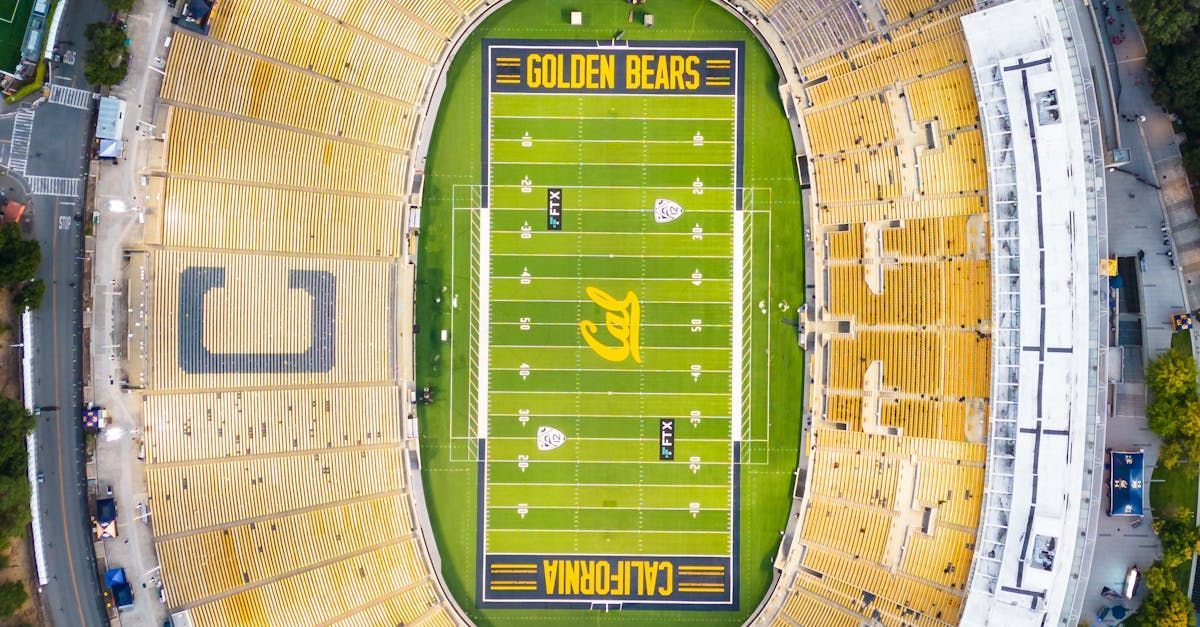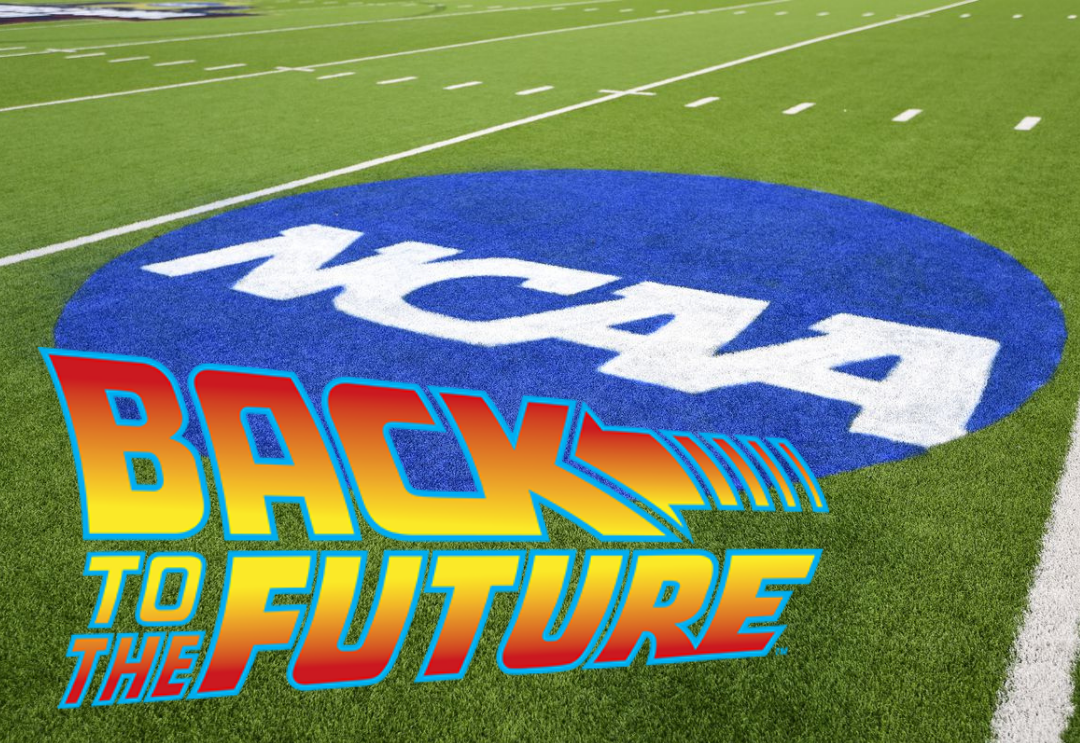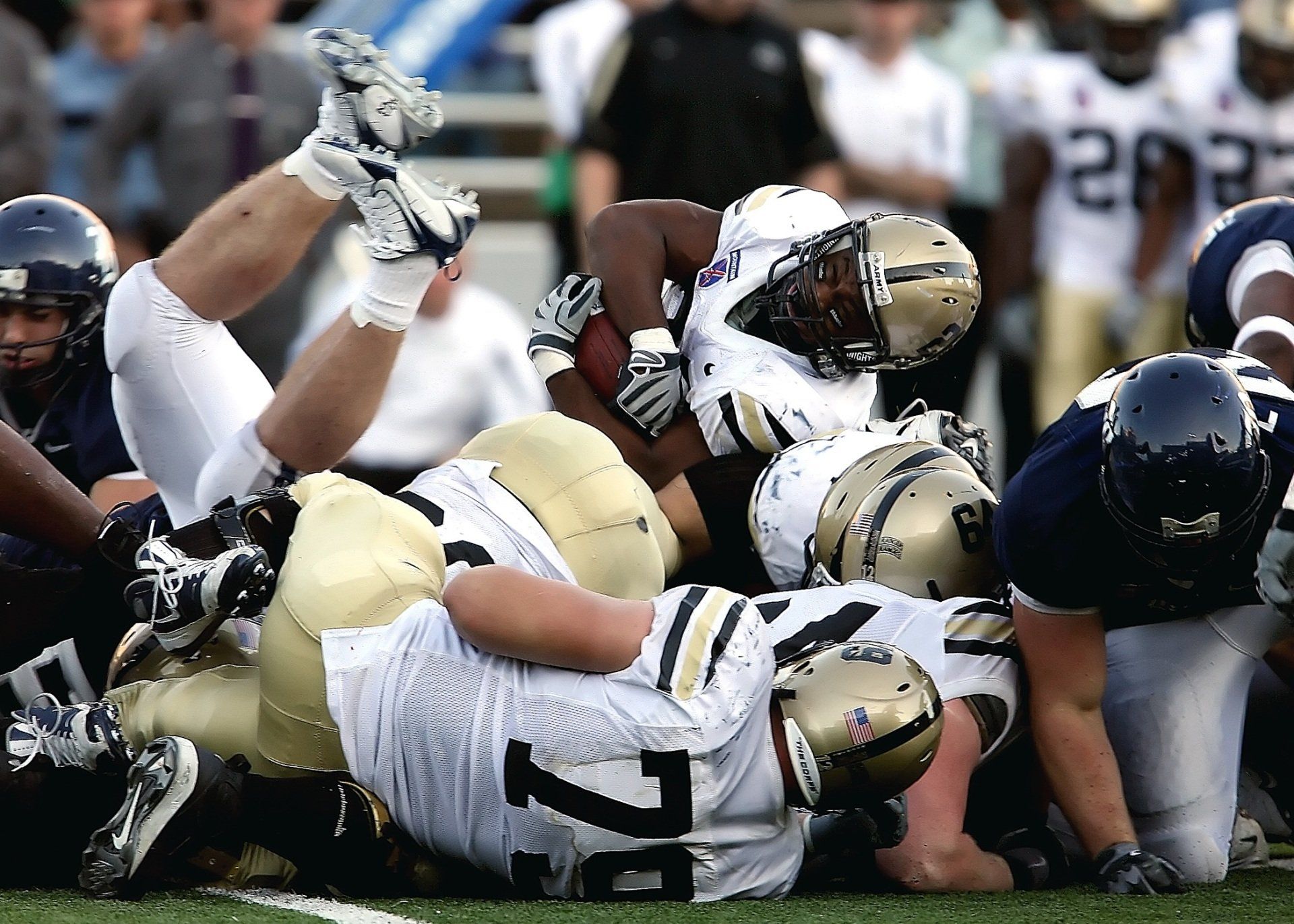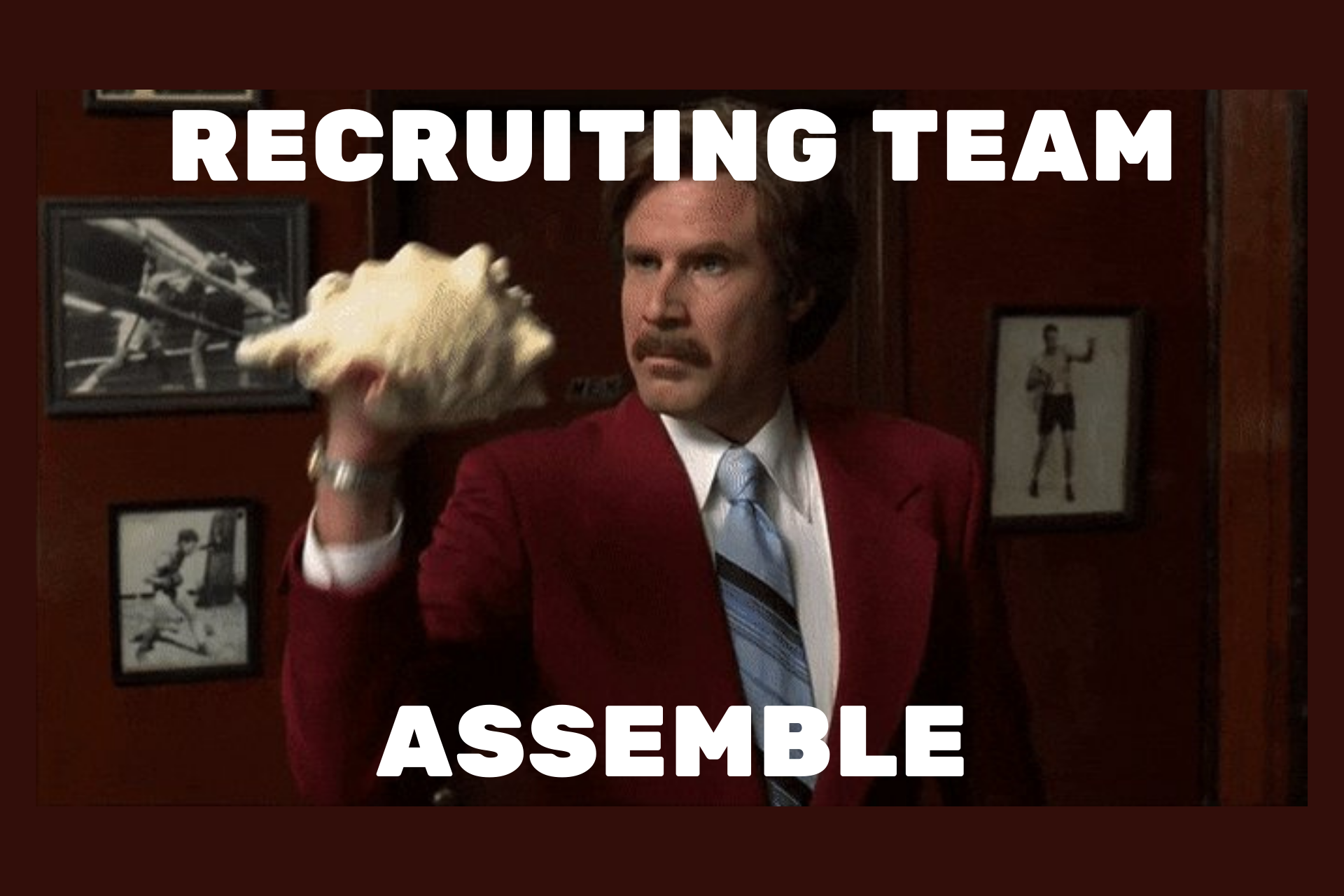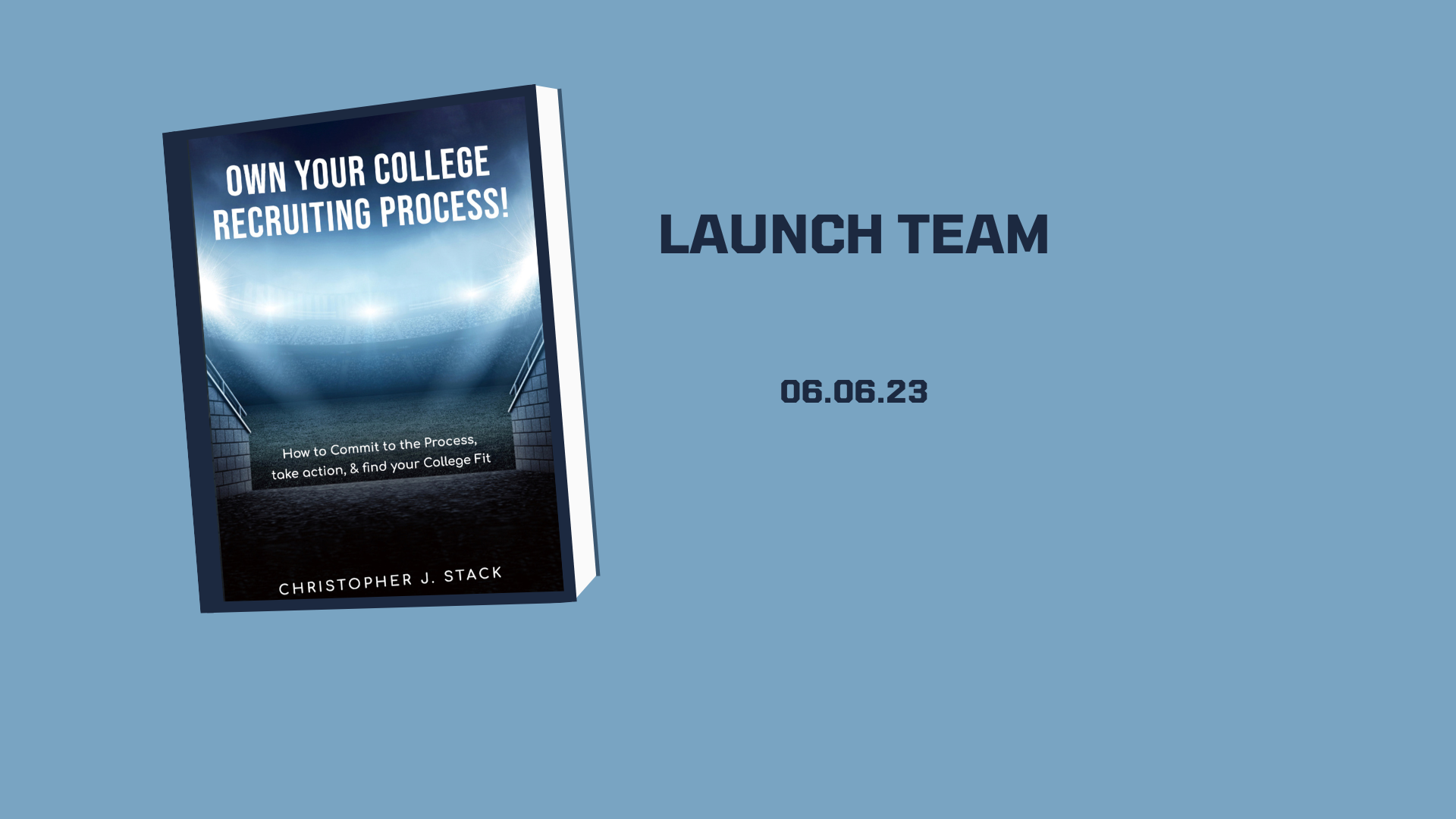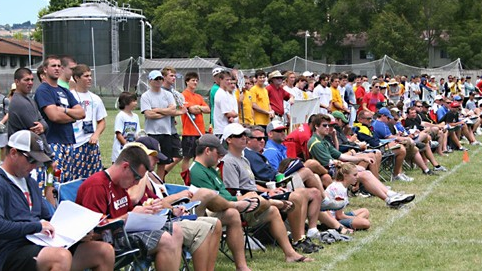Navigating Recruiting Myths, Pitfalls, and Pet Peeves
Making the wrong step or misstep in the college recruiting process can be compared to navigating the treacherous obstacles in the classic Atari game Pitfall. In both scenarios, a single misjudgment can lead to costly consequences and setbacks.
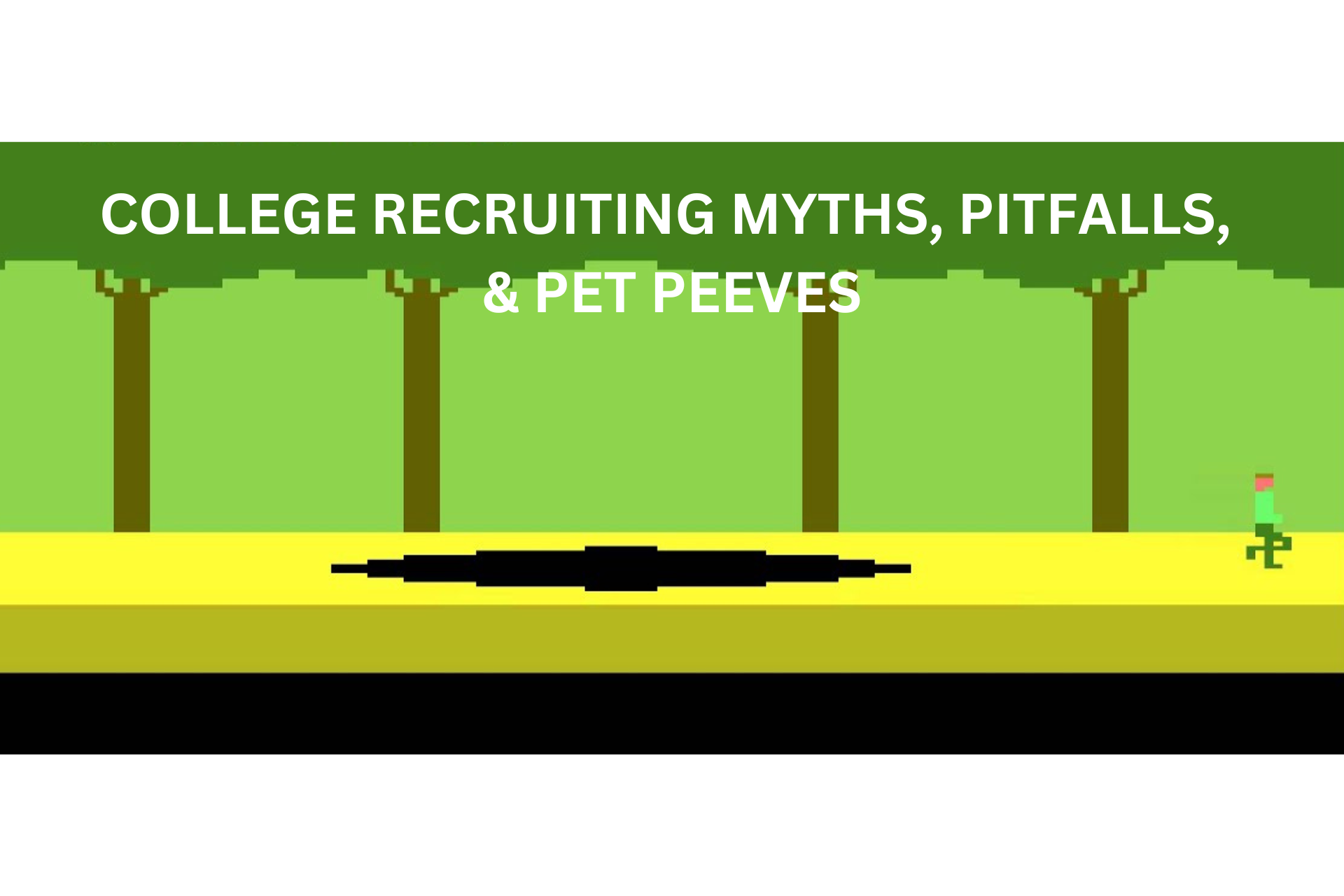
Just as in Pitfall, where the player must carefully navigate hazards like quicksand, rolling logs, and crocodile-infested waters, prospective college athletes must navigate a complex and competitive recruitment landscape. Taking the wrong step, such as choosing the wrong college to pursue or neglecting academic requirements, can have significant repercussions.
"Pitfall Harry once wisely remarked, 'In the perilous journey of life, be it through treacherous jungles or the college recruiting maze, success lies in anticipating and avoiding the dangers ahead. Take each step with purpose, for a misstep can cost more than just progress—it can cost the opportunity of a lifetime.'"
In Pitfall, falling into a pit or colliding with an obstacle means losing valuable time and progress. Similarly, in the college recruiting process, a misstep may result in missed opportunities, such as not being recruited by preferred colleges or losing out on potential scholarship opportunities. Timing is crucial in both scenarios. Just as the player in Pitfall needs to time their jumps and swings perfectly to avoid dangers, student-athletes must be strategic in their approach to college recruitment. Waiting too long to start the process or making decisions impulsively can lead to missed opportunities and regrettable outcomes.
In both Pitfall and the college recruiting process, there is often a limited window of opportunity. Missing deadlines, underestimating the importance of standardized tests, or failing to maintain academic eligibility can close doors for prospective student-athletes.
Ultimately, the comparison highlights the importance of careful planning, strategic decision-making, and precise execution in both navigating Pitfall's hazards and successfully maneuvering through the college recruiting process. Just as in the game, where a misstep can lead to setbacks, in the college recruitment journey, a well-thought-out approach is crucial to avoid costly mistakes and secure a successful outcome.
The recruiting process can be a daunting journey for athletes and their families as they strive to find the right fit for their academic and athletic future. However, navigating through the myths, pitfalls, and pet peeves that often accompany the recruiting process can significantly impact the outcome. Understanding what makes coaches tick, while avoiding common misconceptions and missteps, is crucial for making the most of your recruiting experience. In this article, we'll explore some prevalent myths, pitfalls to avoid, and strategies for optimizing your recruiting journey.
Recruiting Myths
- "Only Division I Schools Offer Athletic Scholarships": Contrary to this belief, all three NCAA divisions, as well as NAIA and junior colleges, can offer athletic scholarships. Student-athletes should explore a variety of institutions that align with their academic and athletic goals.
- "Recruiters Will Find Me if I'm Talented Enough": While exceptional talent is crucial, relying solely on natural abilities can be a pitfall. Proactive self-promotion, engagement with coaches, and participating in recruiting events are essential for increasing visibility.
- "Athletic Performance Trumps Academic Achievements": Balancing academics and athletics is crucial for student-athletes. College recruiters often seek well-rounded individuals who can excel both on the field and in the classroom.
- "Full Scholarships are Common for All Athletes": Full athletic scholarships are rare, especially outside of high-profile sports. Many student-athletes receive a combination of athletic, academic, and need-based aid. Understanding the nuances of financial packages is crucial.
- "Only the Superstars Get Recruited": College recruiters often look for athletes who demonstrate potential, commitment, and a good fit for their program. Many successful student-athletes may not be widely known but still make valuable contributions to college teams.
Pitfalls to Avoid
Navigating the college recruiting process as a student-athlete can be complex and competitive. To ensure a smoother journey, it's essential to be aware of potential pitfalls. Here are the top five pitfalls to avoid in the college recruiting process for student-athletes:
- Procrastination in Starting the Process:
- Pitfall: Waiting until the last minute to initiate the recruiting process can limit opportunities and scholarship options.
- Solution: Begin early by researching colleges, creating a comprehensive athletic and academic profile, and reaching out to coaches during your high school years.
2. Overlooking Academic Preparation:
- Pitfall: Focusing solely on athletic development and neglecting academics can hinder eligibility for college sports and limit scholarship opportunities.
- Solution: Maintain a strong academic record, take required standardized tests seriously, and ensure eligibility by understanding and meeting academic requirements for college athletics.
3. Ignoring Fit for the Sake of Prestige:
- Pitfall: Choosing a college solely based on its athletic program's prestige or reputation, without considering the overall fit academically, socially, and culturally.
- Solution: Evaluate colleges holistically, considering academic programs, campus culture, and location in addition to the athletic program. Seek a balance that aligns with both academic and athletic goals.
4. Neglecting Communication Skills:
- Pitfall: Poor communication with college coaches, including delayed responses, lack of initiative, or unprofessionalism, can create a negative impression.
- Solution: Be proactive in reaching out to coaches, respond promptly to inquiries, and maintain clear and professional communication throughout the recruitment process.
5. Relying Solely on Highlight Reels:
- Pitfall: Depending solely on highlight reels without providing context or additional information about skills, character, and work ethic.
- Solution: Supplement highlight reels with detailed athletic resumes, academic transcripts, and recommendation letters. Showcase not just skills but also your commitment to teamwork and personal development.
By avoiding these pitfalls, student-athletes can enhance their chances of finding the right college fit both athletically and academically. It's crucial to approach the recruiting process with diligence, proactivity, and a well-rounded understanding of what each college can offer in terms of both sports and academics.
College Recruiting Coaches Pet Peeves
College coaches play a crucial role in the recruitment process, and certain behaviors can be perceived as pet peeves that may frustrate them. To ensure a positive and effective interaction, student-athletes should be mindful of the following potential pet peeves:
- Lack of Communication:
- Pet Peeve: Coaches may be frustrated by student-athletes who fail to respond to emails, phone calls, or other communication promptly.
- Solution: Maintain open lines of communication, respond promptly to inquiries, and demonstrate professionalism in all interactions.
2. Incomplete or Inaccurate Information:
- Pet Peeve: Coaches may be annoyed by incomplete or inaccurate athletic profiles, transcripts, or other essential documents.
- Solution: Provide coaches with accurate and comprehensive information, including academic transcripts, athletic achievements, and relevant personal details.
3. Unrealistic Expectations:
- Pet Peeve: Coaches may be frustrated by student-athletes who have unrealistic expectations about scholarship offers, playing time, or the recruiting process in general.
- Solution: Approach the process with realistic expectations, understanding that opportunities may vary, and be open to discussions with coaches about the potential fit for both parties.
4. Lack of Initiative:
- Pet Peeve: Coaches may be irked by student-athletes who do not take the initiative in expressing genuine interest in the program or demonstrating a proactive approach to the recruitment process.
- Solution: Show genuine interest in the program by attending showcases, visiting campuses, and reaching out to coaches with thoughtful questions.
5. Inconsistent Performance or Behavior:
- Pet Peeve: Coaches may be concerned by inconsistencies in a student-athlete's performance, behavior, or commitment to both academics and athletics.
- Solution: Demonstrate consistency in both performance and behavior on and off the field. Coaches value student-athletes who are reliable and committed to maintaining high standards.
By avoiding these pet peeves, student-athletes can build positive relationships with college coaches and increase their chances of a successful recruitment process. It's essential to approach interactions with coaches with professionalism, honesty, and a genuine interest in the program.
Strategies to Maximize Your College Recruiting Process
Maximizing the college recruiting process as a student-athlete involves a proactive and strategic approach. Here are key strategies to optimize your chances of finding the right fit:
- Start Early
- Begin the process early in high school. Research colleges, identify potential programs, and understand their athletic and academic requirements.
2. Build a Strong Athletic and Academic Profile:
- Create a comprehensive athletic resume that includes key achievements, statistics, and highlight videos. Maintain a strong academic record to appeal to coaches and meet eligibility requirements.
3. Attend Showcases, Tournaments, Camps, and Clinics:
- Participate in showcases, tournaments, and events where college coaches may be present. This provides an opportunity for coaches to see you in action and allows you to showcase your skills.
4. Proactive Communication:
- Take the initiative to reach out to college coaches. Craft personalized emails expressing genuine interest in their program. Share your athletic achievements, academic goals, and reasons for wanting to join their team.
5. Create a Recruiting Video:
- Develop a high-quality recruiting video showcasing your skills, versatility, and overall athleticism. Keep it concise and include relevant game footage, skills demonstrations, and highlights.
6. Utilize Online Recruiting Platforms:
- Create profiles on online recruiting platforms where coaches actively search for potential recruits. Ensure your profiles are up-to-date with accurate information, including academic and athletic achievements.
7. Research and Evaluate Programs:
- Research potential colleges thoroughly. Consider factors such as the coach's coaching style, team culture, academic offerings, and campus environment. Evaluate how well these align with your goals and preferences.
8. Attend College Camps and Visits:
- Attend college camps or visit campuses to get a firsthand experience of the program and interact with the coaching staff. This demonstrates your genuine interest and allows coaches to assess your compatibility with the team.
9. Seek Guidance from Coaches:
- Your coaches can be valuable resources in the recruiting process. Seek their guidance, ask for recommendations, and leverage their network to connect with college coaches.
10. Maintain a Professional Online Presence:
- Ensure your social media profiles present you in a positive light. Coaches often check online presence as part of their evaluation process. Remove any content that may be perceived negatively.
11. Be Open-Minded and Flexible:
- Be open to exploring various opportunities and consider programs that may not be widely known but align with your goals. Be flexible in adapting to different coaching styles and team dynamics.
By combining these strategies with dedication, perseverance, and a positive attitude, you can maximize your college recruiting process and increase the likelihood of finding the right collegiate athletic and academic fit.
